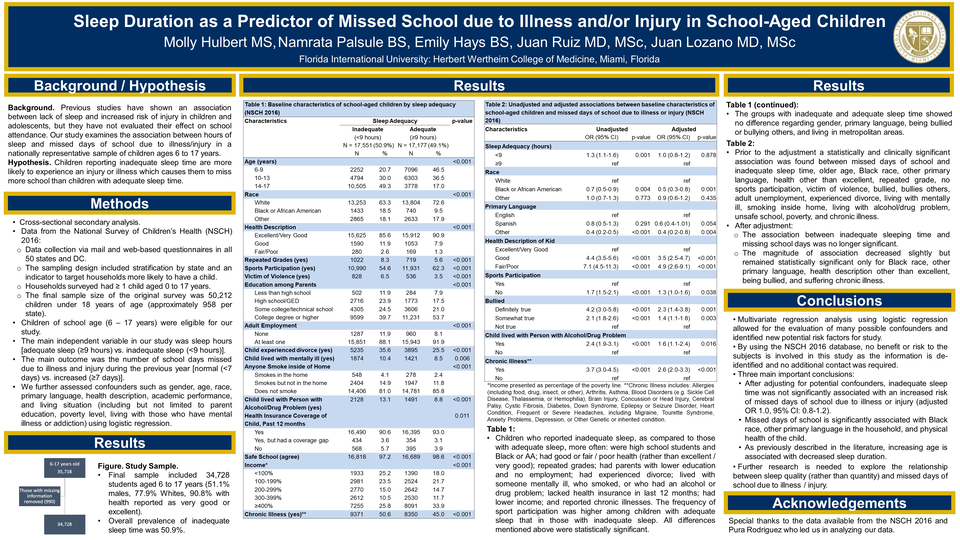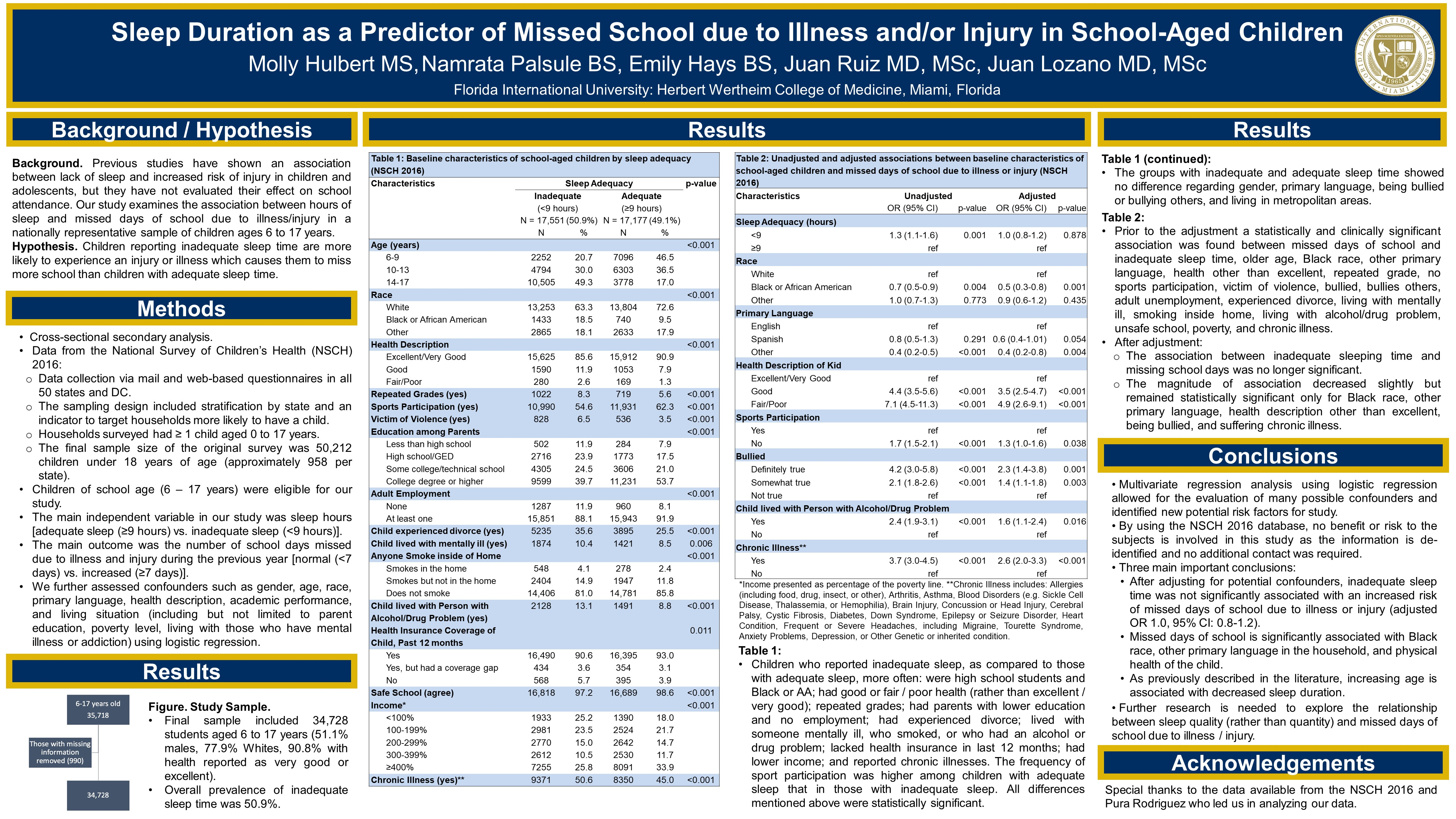Abstract
Objectives: Previous studies have shown an association between lack of sleep and increased risk of injury in children and adolescents, but they have not evaluated their effect on school attendance. This study aims to examine the association between hours of sleep and missed days of school due to illness/injury in a nationally representative sample of children ages 6-17 years.
Methods: The data for this cross-sectional secondary analysis were obtained from the National Survey of Children’s Health (NSCH) 2016. Data collection was conducted via mail and web-based questionnaires in all 50 states and DC from June 2016 to January 2017. The households surveyed had at least one child age 0-17 years. The sampling design included stratification by state and a child presence indicator to target households more likely to have a child. The final sample size of the original survey was 50,212 child-level interviews (approximately 958 per state). The main independent variable was sleep hours [adequate sleep (≥9 hours) vs. inadequate sleep (<9 hours)], while the main outcome was the number of school days missed due to illness and injury [normal (<7) vs. increased (≥7)] in children ages 6-17 years. We further assessed confounders related to child, household, parent, and community characteristics using logistic regression.
Results: Among 34,728 students included in the final multivariate model, parents progressively reported inadequate sleep as children increased in age. We did not find a significant association between inadequate sleep hours and increased number of missed days of school due to illness or injury (adjusted OR= 1.0, 95% CI: 0.8-1.2). The study revealed that the following survey responses were risk factors for increased missed days of school due to injury/illness: Good or Fair/Poor health, being bullied, having a chronic illness, no sports participation, and living with someone with an alcohol/drug problem. Alternatively, protective factors included a race description of Black or African American and speaking a primary language other than English or Spanish.
Conclusions: The multivariate statistical model presented in this study provides empirical evidence for three important conclusions. First, inadequate sleep was not significantly associated with an increased risk of missed days of school due to illness or injury. Second, missed days of school are significantly associated with race, physical health of the child, and primary language of the household. Third, as previously described in the literature, increasing age is associated with decreased sleep duration in this study. Further study is needed to explore the relationship between sleep quality and missed days of school due to illness/injury.





